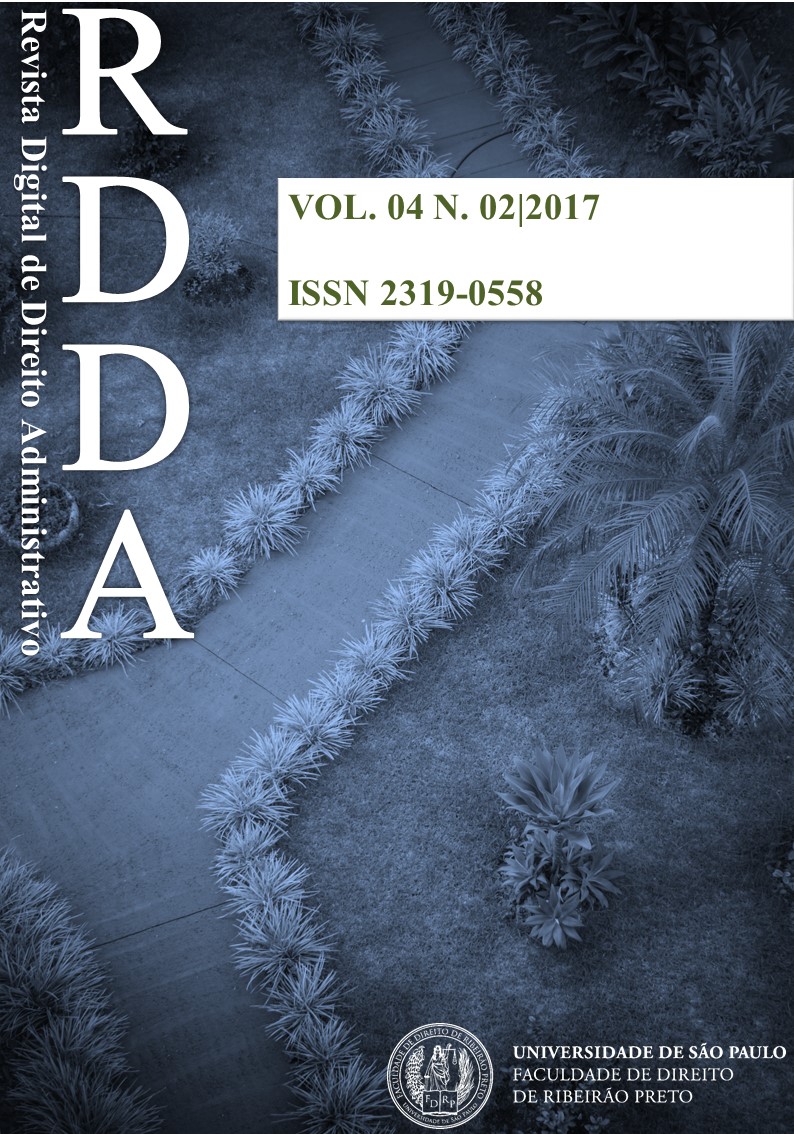The inefficiency of the current model of civil liability of the State in Brazil and the necessity to prevent damages
DOI:
https://doi.org/10.11606/issn.2319-0558.v4i2p117-136Keywords:
Civil liability of the State, Inefficiency, Damage, Prevention, Legal injuctionsAbstract
This articles analyzes the current model of state civil liability adopted in Brazil, initially stressing three aspects that demonstrate its inefficiency: (i) the financial limitations of the State and the argument of the “reserve of the possibilities”; (ii) the system of “precatórios” in Brazil, which makes practically impossible to adequately satisfy the rights recognized to citizens in face of the Public Administration in lawsuits; (iii) the difficulty of compensating uncountable damages caused to fundamental rights. Although traditional doctrine has always considered damage as an essential element of the State's civil liability institute, it is argued that, following what has already been done under Civil Law and Environmental Law, this matter must be reviewed at that point in order to establish preventive ways of State civil liability. Finally, it is understood the need to apply, in the Brazilian Administrative Law, the legal injunctions described in art. 497, sole paragraph, of the Code of Civil Procedure.Downloads
Download data is not yet available.
Downloads
Published
2017-07-31
Issue
Section
ARTIGOS CIENTÍFICOS
License
Autores que publicam nesta revista concordam com os seguintes termos:
- Autores mantêm os direitos autorais e concedem à RDDA o direito de primeira publicação, com o trabalho simultaneamente licenciado sob a Creative Commons Attribution-NonCommercial-ShareAlike 4.0 International License. que permite o compartilhamento do trabalho com reconhecimento da autoria e publicação inicial nesta revista.
- Autores têm autorização para assumir contratos adicionais separadamente, para distribuição não-exclusiva da versão do trabalho publicada nesta revista (ex.: publicar em repositório institucional ou como capítulo de livro), com reconhecimento de autoria e publicação inicial nesta revista (referência à RDDA).
- Autores têm permissão e são estimulados a publicar e distribuir seu trabalho online (ex.: em repositórios institucionais ou na sua página pessoal) a qualquer ponto antes ou durante o processo editorial, já que isso pode gerar alterações produtivas, bem como aumentar o impacto e a citação do trabalho publicado (Veja O Efeito do Acesso Livre).
How to Cite
The inefficiency of the current model of civil liability of the State in Brazil and the necessity to prevent damages. (2017). Revista Digital De Direito Administrativo, 4(2), 117-136. https://doi.org/10.11606/issn.2319-0558.v4i2p117-136


